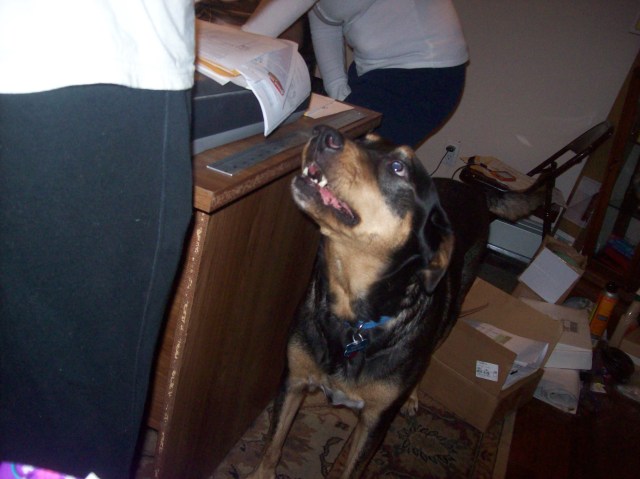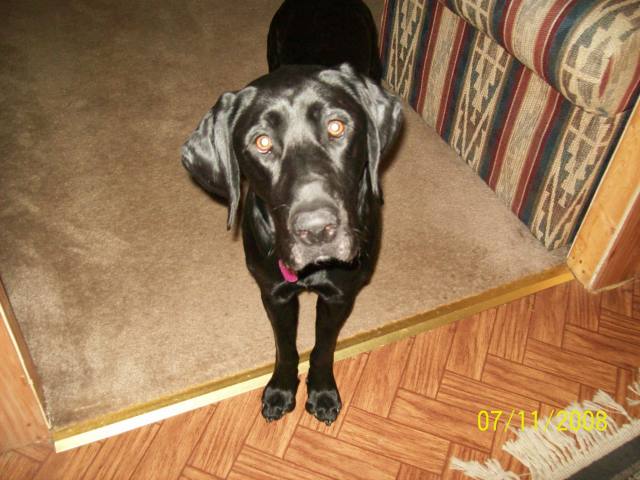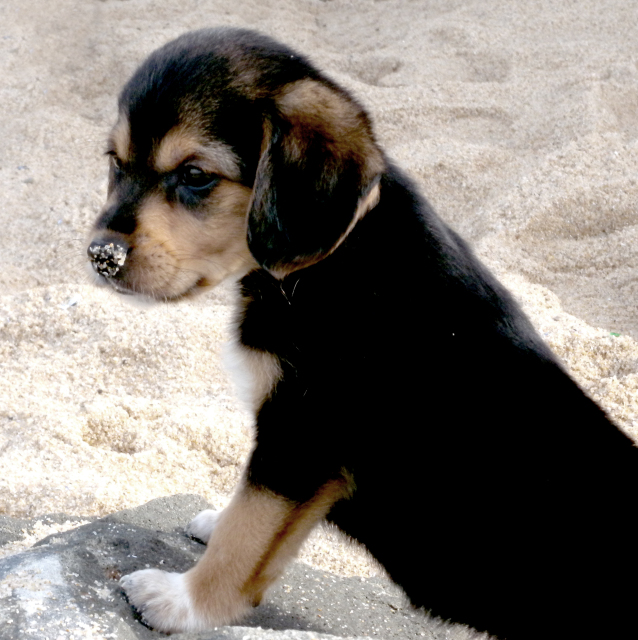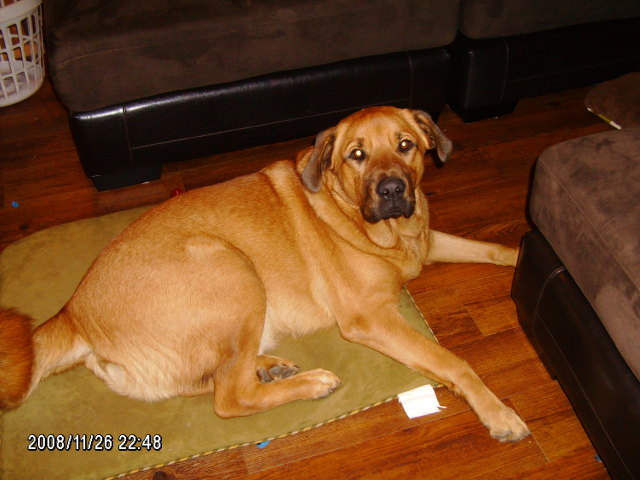QuestionHello Patti. Thank you for taking the time to read this. I will get to the point. My 15 year old mix has a tumor on his foot. It is the size of a grape ( right now ) I took him to the Vet and was told it is a tumor that would have to come off but I had to make the decision due to his age. The Vet tried to reassure me of the surgery stating they can use gas on him rather than IV sedation. This is "easier" for dogs to come out of if there is a problem during surgery. I do understand that this is my decision alone to make and I should do what is right for him not what is right for me. The tumor is located between his end "toe" and he licks on it causing it to bleed and get inflamed. I have tried to keep a sock on it along with using the cone collar. He is still able to get to it. Please, any advise you can give?
Thanks, Robin
Answer
Hi Robin,
It sounds like it's time to remove the growth on your dog's foot, since the more passive methods of restraint haven't worked. All the licking and subsequent bleeding can lead to secondary infections, and even more problems than the growth itself is causing.
Have you talked to your vet about the possibility of using a local anesthesia, and not a general one? Some procedures CAN be done on an awake patient. Valium is one of the safest of pre-anesthetics, and while it must be used with caution in patients with liver problems, it is very useful for anesthesia in the elderly or high-risk dogs. It makes a dog very relaxed, but not unconscious. Because this is a pretty minor surgery, (as surgery goes) this might be an option. Talk to your vet about the possibility of using a local anesthesia. If you are think a local anesthesia sounds like a safer option for your dog, but your vet doesn't think it's a good idea, talk to other vets in your area. It's totally possible to find a vet who feels comfortable using a local anesthesia rather than a general anesthesia. Vets are creatures of habit, just like you and I. The safest anesthesia is often the one the doctor is most familiar with.
Even though your dog is 15 years old, if he's not having other health concerns there's an excellent chance of him not having any problems with surgery. To be sure your dog hasn't got any unknown health concerns that could complicate the anesthesia or surgery, it's smart to have pre-operative lab work run. In an elderly dog, it is essential to detect concurrent disease prior to anesthesia.
Isoflurane and Servoflurane are two of the popular a gas anesthetics commonly used today. They have a wide margin of safety compared to the older Metophane and Halothane, making them the drug of choice for most older dogs. Because 99% of these drugs leave the body through breathing, animals begin to wake up almost as soon as the gas is turned off. These drugs don't depress the heart and aren't stored in the fat or processed by the liver or kidneys. Geriatric dogs can be "masked down" with these gas anesthetics in minutes, then intubated and maintained during surgery. Animals usually begin to wake in 1-2 minutes once the the gas is turned off. Recovery times with Servoflurane are reportedly even quicker than those with Isoflurane.
Tufts University School of Veterinary Medicine reports in their March 1998 Newsletter that a new injectable anesthetic, "Propofol" (brand name "Rapinovet"), has been shown to be less risky than other forms of anesthesia because it is eliminated even more quickly from the dog's body. Apparently, dogs show less residual grogginess and irritability when recovering from Propofol. Older dogs are generally at greater risk than younger dogs when anesthesia is administered, so this new anesthetic may be the best for an older dog.
I hope I've been a help.
Best of luck, to both you and your dog!
Patti

 old age dog
Question
he was barking!
I have a Dog who is a german s
old age dog
Question
he was barking!
I have a Dog who is a german s
 My 2 yr old blacks eating habits.
Question
Pic of Tula
I have a 2yr old black lab. Her an
My 2 yr old blacks eating habits.
Question
Pic of Tula
I have a 2yr old black lab. Her an
 Bedwetting and poop eating
QuestionQUESTION: We have a 12 week old beagle cross wh
Bedwetting and poop eating
QuestionQUESTION: We have a 12 week old beagle cross wh
 mouthing; pawing, wont drop it
Question
My puppy Trigger
I have a 10 month old LARGE (
mouthing; pawing, wont drop it
Question
My puppy Trigger
I have a 10 month old LARGE (
 Mini-Daschund Question
Question
Baby
I got a rescus mini about 6 years ago. &n
Mini-Daschund Question
Question
Baby
I got a rescus mini about 6 years ago. &n